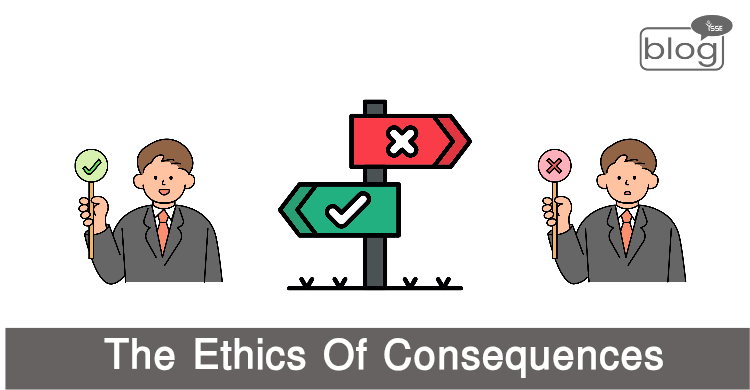Suppose you are riding a bus, you lose control over the bus. You see two ways by which you can go. But on the roads, there is 1 person on the left road and 5 people on the right. You need to decide whether to go over one person or go over the five. You cannot stop the bus because you lose control.
So what would you choose in this situation?
Your morality will suggest that you don’t go over any person. But you have no way so your brain suggests you go over one person because in this situation maximum people become safe.
But what if the 5 people who are in the right are the most wanted criminals! What will you do?
When you are not able to choose what to do next it is called the problem of choice. Here every single choice depends on consequences. And many ethical theories give a framework to choose the greater good to face the ethical dilemma or to choose the right or wrong different situation. Let’s see some ethical theories:
Egoism: It is an ethical philosophy that focuses on self interest. Individuals’ own satisfaction is everything according to this theory. Egoistic people always choose the decision which satisfies their interest.
The Needs of others don’t matter to egoistic people while facing the consequences. But egoism doesn’t mean to be selfish. Egoistic people collaborate with other people and work for social benefit but for self interest.
For example: Mr X helps his friend because he thinks that by doing this he can feel good.
Utilitarianism: It is called the ‘greatest good’ theory. It is a theory of morality that focuses on consequences of action that satisfy the maximum number of people. This principle promotes maximum happiness toward people. Utilitarian people aim for the betterment of society. They love to work with everyone. But their actions can be both right or wrong. Their wrong decision can lead to negative consequences.
For Example: President X decides to construct a bridge in the village because it will satisfy the maximum number of people there.
Virtue Ethics: It includes good moral characters like honesty, justice & truth. This ethics can come from your own religion. Because religion always shows the path of honesty and justice. Virtue Ethics is actually your internal feeling also. If you think you are doing right then you are doing right from your perspective. It may focus on selflessness. Because it focuses on our own behaviour.
Deontology: This theory focuses on duty and rules. It is about doing the right things even if the outcome is negative. You always have to follow rules of truth whatever consequences you may face.
For Example: Your friend is facing cancer. But he doesn’t know it. Doctor told you to not tell him the truth. Because if he knows it he may face a stroke. So, what will you do? According to deontology you will tell him the truth even if he faces a stroke.
So, Our daily life we face many consequences while making a decision. In this issue, we cannot depend on any single theory to choose right or wrong. We have to follow our moral values and also other happiness when we are going to face ethical dilemmas.
To read more blogs like this, click here
Writer,
Prottoy Kanti Das,
Intern, Content Writing Department,
YSSE.

